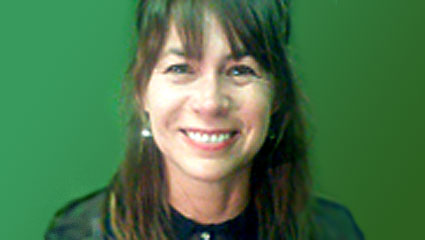As I write this, a fire near my home in Southern California is consuming the earth.
The Santa Ana winds feed the fires, like a stupid codependent friend offering alcohol to an angry drunk. If you were to see these fires, you would know the loss. But in a heartbreaking way, the air, though apocalyptic in that reddish-black way, smells good. When the sagebrush and the California laurel burn there is a holy aroma about it all, like incense. But it turns out that their sweet odor is the smell given off by a toxin, a toxin that when the plant is alive suppresses the growth of the other plants around them. Because these plant toxins are hydrocarbons, when a fire roars through the area, they burn. Once the toxins are destroyed, long dormant seeds can flourish, flowers that haven’t been seen in years, like the fire poppy. The fire poppy actually requires fire to germinate.
Sometimes it seems that blessing is as tied to what is lost as anything, like the way seeds are born out of fire. And loss, as most of us know, is as close to us as our own skin. But you have to wonder about this awful pull of love that makes us vulnerable and hopeful and terrified. This love that breaks your heart again and again. All the little losses that lie beneath the ruin like treasure.
It would be a wonderfully easy thing if being blessed was about life being easy, or at least easier. But maybe in this world where we live by breath, blessing is what we are given to lean into. Maybe it’s more about being called into something more humble, summoned outside ourselves. Life is demanding; we grieve, we are broken. But over time, we find that blessing is as shaped as much by memory as it is by vision. Somehow we discover, if we really are blessed, that most blessings are small and fragile, and all the things we think we own like beauty and intelligence and wealth are like the dryer lint of life, the throw-away leftovers of something that was, and never mattered anyway. But the biggest blessing is simply to be loved, and of course, to love. The Word has been made flesh and now. We are loved, and our lives will be forever diverted by this strange liturgy.
“Where there is ruin, there is hope for treasure.” That’s the poet Rumi. Back in Southern California, the first thing to grow won’t be the sage or the laurel. It will be the fire poppy. The things we cannot see, things that have been buried and have lain there dormant will be the first to be released. The first green of the emerging poppies is lovely against the blackened earth. But then there are the blooms; their long, delicate stems lift upward as if the orange petals were pulled heavenward by urgent hope. Things are different now. The Father has sung the song of the newborn, and death is forever bound into eternity and promise.
